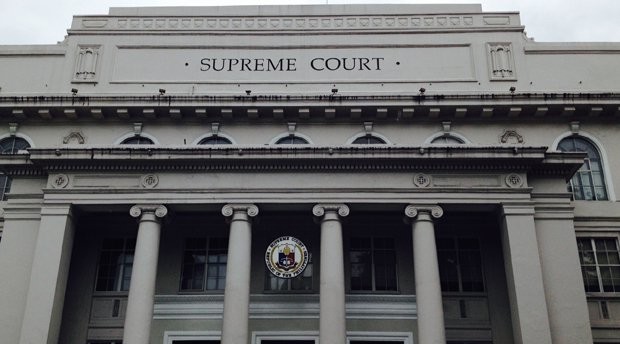The President of the Philippines has absolute immunity from suit even for wrongdoing committed during his term, government lawyer told the Supreme Court in asking for the dismissal of the petition for habeas data filed by Senator Leila De Lima against President Rodrigo Duterte.
De Lima sought the Supreme Court’s help through a petition for habeas data to stop Duterte and his men from gathering information on her private life.
READ: De Lima files test case vs Duterte’s immunity from suit
She urged the high court to order the destruction of the obtained pieces of personal information.
In her petition, she said the verbal attacks on her womanhood and threats are not covered by presidential immunity from suit.
She said Duterte’s discriminate remarks against her “constitute psychological violence prohibited by Republic Act 9710 or the Magna Carta of Women.” She added that the personal attacks against her also violated the Code of Conduct and Ethical Standards for Public Officials and Employees.
Immunity from suit is accorded a sitting President to ensure that he or she can exercise his duties and functions of running the country’s affairs free from any hindrance or distraction.
Section 17 Article VII of the 1973 Constitution provides that “the President shall be immune from suit during his tenure. Thereafter, no suit whatsoever shall lie for official acts done by him or by others pursuant to his specific orders during his tenure. The immunities herein provided shall apply to the incumbent President referred to in Article XVII of this Constitution.”
Head of the government lawyer, Solicitor General Jose Calida, told the high court that the 1973 Constitution did not distinguish official from unofficial acts.
READ: SC orders De Lima, SolGen to submit memos on Duterte immunity
“When the law does not distinguish, we must not distinguish…Clearly, therefore, the intent was to give the President absolute immunity even for wrongdoing committed during his tenure,” Calida said.
He explained that the second paragraph of Section 17 pertains to immunity after tenure only for official acts.
Calida added that the immunity from suit provision was removed from the 1987 Constitution but only because as explained by Fr. Joaquin Bernas, a member of the 1986 Constitutional Commission, it was already considered understood in present jurisprudence that the President is immune from suit during his tenure.
He added that the presidential immunity from suit extends to all kinds of proceedings not only criminal.
“This Honorable Court recognized the principle of absolute immunity despite the lack of any criminal or civil liability that may be imposed on the president.”
Plus, Calida added that De Lima failed to cite any illegal means used to obtain information on her private life.
“There was merely a general allegation that information about her was being collected illegally. The extraordinary nature of the writ requires more than an assertion that the President has, in his possession, information which was collected through unlawful means.”
Calida also reminded De Lima that she is a public figure and being a public officer, “there is a legitimate public interest in her life and activities. Being a public figure, petitioner (De Lima’s) private life is consequently open to public scrutiny and opinion.”
“Accordingly, considering that the statements made by the President were in relation to Petitioner’s qualifications to hold public office and her perceived involvement in illegal drugs, the President’s statements about Petitioner are well within the ambit of matters of public interest,” Calida added. RAM
